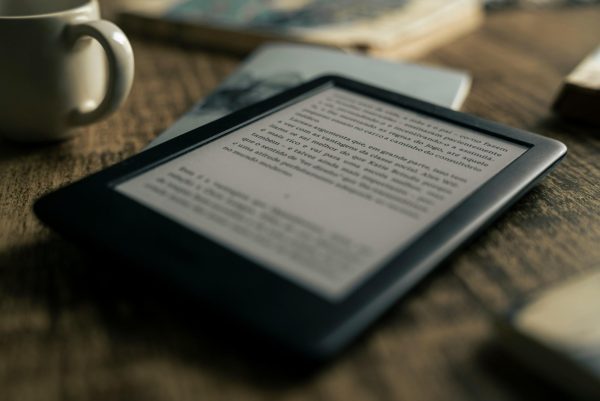Members of Generation Z, born between 1997 and 2012, haven’t been on Earth all that long — the oldest Gen Zers are only twenty-six years old. Despite the short time they’ve been here, however, a distinct stereotype of them has emerged. They are chronically online, with phones practically attached to their hands.
And while other generations have also been stereotyped and insulted, there is something about the Gen Z stereotype that feels particularly biting. An obsession with social media implies that Gen Zers don’t have a work ethic, that they’re more likely to scroll through TikTok than to do their homework. It also leads some to believe that members of Gen Z do not read.
Many students whom I’ve talked to at Bronx Science, as members of Generation Z themselves, have said that they don’t think Gen Z reads; several of them cited social media to explain why. “A lot of Gen Z seems to thrive on self-gratification,” said Amy Beloume ’24. Self-gratification, the act of indulging one’s desires, is something frequently connected to the overuse of social media.
You may have heard of the similar notion of instant gratification, which can be defined as the desire to feel satisfaction immediately. While social media usage has been linked to mental health issues such as anxiety and depression in the long run, social media can be very satisfying to use in the short term. Our brains release dopamine when partaking in activities considered pleasurable, including social media use, and this dopamine prompts us to continue the activity and seek out more pleasure, creating a destructive cycle.
Though this affects everyone in contact with some form of social media or technology, the effects may appear most pronounced among kids and teenagers. Their brains are still developing, and the effects of social media on this process are not completely understood yet.

Other students I interviewed also brought up shortening attention spans as a reason why they think young people aren’t reading as much lately. For years now, attention spans have been decreasing — and social media is one of the main contributing factors.
There are other reasons why members of Generation Z (as well as other generations) may be reluctant to pick up a book. Some people don’t have the time or resources to do so; in between school, work, extracurricular activities, and familial obligations, it can be hard to find free time to read. This is especially true for Bronx Science students, who often juggle multiple extracurriculars and Advanced Placement classes. When you have several assignments due, sports practice, and work, it can be hard to justify reading for leisure, let alone find the time to do so.
In addition, a lack of access to books can impact whether people read or not. Though the Bronx Science school library has hundreds of books available to students, other schools may not have the same resources. And recent budget cuts to New York City libraries may make it more difficult to access books in person.
This is something Arianna Hwang ’24 has experienced. Books aren’t as accessible to her, so she often reads webcomics instead. “I live closer to a Burger King than I do a bookstore,” she shared, adding that her local library operates on a schedule inconvenient for her: it opens while she’s at school and closes before she gets home.
However, there is an argument for the value of reading a good book every once in a while. In addition to providing a source of entertainment, reading can improve the quality of your sleep, reduce stress, and even help stave off memory-related illnesses such as Alzheimer’s disease. It can enhance your vocabulary, improve your writing skills, and stimulate your imagination.
And though it can be difficult to make time for reading in their already jam-packed schedules, many students at Bronx Science read for fun. Amy Beloume is one of these students; she often has several books checked out at once on Libby and a few physical books on hand as well. She’s currently reading A Confederacy of Dunces by John Kennedy Toole and Dune by Frank Herbert.

A Confederacy of Dunces is a novel about a man named Ignatius Jacques Reilly who lives in New Orleans with his mother. He frequently bemoans what he views as society’s loss of morals and true values and resists participating in it. However, he is unable to stay away from society for long — his mother crashes her car, and Ignatius must find a job to pay the bills for the accident.
The novel consists of his quest to make money as he bounces from job to job and interacts with others. His judgments of other people, as well as his inflated sense of self-worth, make for a funny read. When explaining to his mother why he doesn’t think he will be hired for a job, Ignatius claims, “‘Employers sense in me a denial of their values…They fear me. I suspect that they can see that I am forced to function in a century I loathe. This was true even when I worked for the New Orleans Public Library.’”
The main character of Dune, Paul Atreides, also has a complex relationship with his mother. That’s about the only similarity between the two books, however. Dune is the first novel in a science fiction series set thousands of years into the future, in a world where civilization has organized itself into a system resembling medieval feudalism. Warring noble houses reside on and rule over different planets in the universe.
Atreides is the heir to the dukedom of the planet Caladan — until the emperor of the universe sends his family to rule the planet Arrakis instead. Arrakis is a far cry from water-abundant Caladan; its harsh desert climate makes it practically inhospitable. It does, however, have one advantage: melange, the spice that is the basis of the universal economy. Whoever controls the spice controls, whether directly or indirectly, everything else.
The book brings up several important issues, discussing how religion can be a tool to control and manipulate others and how power can be a force of corruption. It is an interesting look into a civilization overrun by corrupt leaders, obsessed with a resource to the point of insanity; it may even inspire reflection on our world today.
Faiza Khan ’25 is also a reader. She told me that she loves having physical books on hand but often turns to e-books when she doesn’t have time to go to the library. Because of this, she reads a combination of e-books and physical books: though she also loves audiobooks. “To be honest, I can’t choose,” she answered, when I asked what her preferred method of reading was.
She was more decisive about her favorite book, A Blade So Black by L.L McKinney. The book is an Alice in Wonderland retelling, with the protagonist slipping in between two worlds: Wonderland, where she’s trained in fighting monsters that attack on a whim, and her home in Atlanta, Georgia, where she must cope with her overbearing mother and other typical teenage problems. Fantasy novels are a favorite among Gen Z readers, and this rings true for Faiza as well. In addition to A Blade So Black, she loves the Throne of Glass series by Sarah J. Maas, a high fantasy series following the journey of a teenage assassin in the kingdom of a tyrannical, power-hungry ruler.

(Marissa Talushllari)
However, Faiza doesn’t believe that other members of the Gen Z generation read. She attributed some of this to simply wanting to do other things with their free time — browse social media, hang out with friends — but she also discussed how reading books in class can deter students from reading. The books read in English classes are often analyzed down to the last detail, which can detract from the overall experience of reading the book. In addition, being forced to read a certain amount of chapters by a deadline can make some students feel as though reading is a chore rather than an activity to be enjoyed.
This is a common theme amidst the many students I interviewed about their reading habits. Though Mia Young ’24 enjoys the book she’s reading for her AP English Literature class, Jane Eyre by Charlotte Brontë, she believes that she would enjoy reading more if she didn’t have to do it for school.
Out of everyone I spoke to while researching for this article, Cortez Pagan ’25 was the only person who was confident that Gen Z reads. And she’s right — while members of Generation Z don’t read more than previous generations, they do pick up a book once in a while.
A report released by Wattpad indicates that 55% of Gen Zers read once a week or more frequently. The report also indicates that most Gen Zers read on their phones, opting for e-books instead of physical books. There could be many reasons for this.
Our generation grew up with devices everywhere. It makes sense that a lot of Gen Zers might want to read on their phones, as they do everything else there.
E-books are often more convenient for people; they can go anywhere you do and can be enjoyed at any time. Lugging around a four-hundred page physical novel can be bothersome, so storing it on a device such as your phone or an e-reader is much easier.

Though this shift to e-books can largely be attributed to the digitization of society, the pandemic also spurred many people to read electronically. Libraries and bookstores closed down, and people couldn’t leave their homes. E-books were, in some cases, the only new material they could read. Although there are some challenges associated with reading e-books, they can be a good choice for people who want to read on their own time. Whenever they have a moment to spare, they can pull out a device and start reading in a matter of seconds.
Whether it is through audiobooks, e-books, or physical books, the best way to read more is to jump right in. If checking out a book at your local library isn’t an option, apps like Libby make it easy to read wherever, whenever.
Some people don’t read as often as they would like because of their schedule. Unfortunately, there are no easy fixes for this problem. The only way to find time to read, as is the case with everything you want to do, is to make time for it. It may be more fun at the moment to look at social media, but a good book is something that will stay with you forever.
There are millions of books out there, and at least one is bound to catch your attention. There are many ways to find interesting books; Goodreads and quizzes like this one can help people find what book to read next. It can also be helpful to seek out recommendations from friends and others— librarians will generally be willing to help anyone in want of a book to read.
Above all, remember that it’s never too late to start reading again, whether you haven’t touched a book outside of school in months or in years. When it comes to reading, the benefits strongly outweigh any possible drawbacks.
Out of everyone I spoke to while researching for this article, Cortez Pagan ’25 was the only person who was confident that Gen Z reads. And she’s right — while members of Generation Z don’t read more than previous generations, they do pick up a book once in a while.

